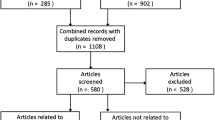Abstract
In contemporary education policy, simplified technical accounts of policy problems and solutions are being produced with the use of numeric calculations. These calculations are seen as clear and unbiased, capable of revealing “what works” and identifying “best practices.” In this piece, the authors use resources from the material-semiotic approach of actor-network theory to discuss how calculations have begun to serve as a subtle infrastructure underpinning the way we understand and organise our world. They demonstrate the usefulness of the approach in tracing the technicisation of policy by deploying it to qualitative studies of like-school comparisons in the two unexpectedly linked locations—New York City and Australia. The authors reveal how technical accounts are precarious and need constant maintenance to endure, even as they increasingly becoming routine, curtailing the policy imagination and limiting the spaces of contestation. It is for this reason, they argue, that a deeper understanding and sustained critique of such accounts is of pressing importance.
Similar content being viewed by others
Notes
Several terms and words first appear in quotations to designate that they are contested and should not be taken at face value.
As Law (2007) reminds us, ANT has been taken up by different researchers in different ways. Rather than a single, coherent or strong ‘theory’, Law suggests that ANT is ‘a sensibility to the messy practices of relationality and materiality of the world,’ bringing with it ‘a wariness of the large-scale claims common in social theory.’ (p. 2).
References
Angus, M. (2011). Rewarding “great” teachers? Retrieved January 10, 2012 from http://www.appa.asn.au/index.php/principals-voice/performance-pay-160511.
Attard, M. (2008). Joel Klein, New York City Schools Chancellor. Retrieved July 14, 2010 from http://www.abc.net.au/local/stories/2008/08/28/2348955.htm.
Barry, A. (2002). The anti-political economy. Economy and Society, 31(2), 268–284.
Callon, M., Lascoumes, P., & Barthe, Y. (2001). Acting in an uncertain world:An essay on technical democracy (G. Burchell, Trans.). Cambridge, MI: The MIT Press.
Callon, M., & Muniesa, F. (2005). Peripheral vision: Economic markets as calculative collective devices. Organization Studies, 26(8), 1229–1251.
Cramer, P. (2009). Duncan: NYC reform initiatives a model for stimuls spending. Gotham Schools. http://gothamschools.org/2009/02/19/duncan-nyc-reform-initiatives-a-model-for-stimulus-spending/. Accessed 1 March 2009.
Ewing, J. (2011). Mathematical intimidation: Driven by the data. Notices of the AMS, 58(5), 667–673.
Fenwick, T. J., & Edwards, R. (2011). Considering materiality in educational policy: messy objects and multiple reals [Article]. Educational Theory, 61(6), 709–726.
Gale, T., & Lingard, B. (Eds.). (2010). Educational research by association: AARE presidential addresses and the field of educational research. Rotterdam: Sense.
Gillard, J. (2008). Speech. Paper presented at the ACER Research Conference. Retrieved from https://ministers.deewr.gov.au/gillard/acer-research-conference.
Jasanoff, S. (2005). Designs on nature: Science and democracy in Europe and the United States. Princeton, NJ: Princeton University Press.
Klenowski, V. (2009). Raising the stakes: The challenges for teacher assessment. http://publications.aare.edu.au/09pap/kle091607.pdf. Accessed 1 Jan 2010.
Koyama, J., & Varenne, H. (2012). Assembling and dissembling: Policy as productive play. Educational Researcher, 41(5), 157–162.
Labaree, D. F. (2011). The lure of statistics for educational researchers. Educational Theory, 61(6), 621–632.
Lather, P. (2005). Scientism and scientificity in the rage for accountability: A feminist deconstruction. Paper presented at the First International Congress of Qualitative Inquiry.
Latour, B. (1993). We have never been modern. New York: Harvester Wheatsheaf.
Latour, B. (2005). Reassembling the social: An introduction to Actor-Network-Theory. Oxford: Oxford University Press.
Law, J. (2009). Actor network theory and material semiotics. In B. S. Turner (Ed.), The new Blackwell companion to social theory (pp. 141–158). Oxford: Blackwell/Wiley.
Lingard, B. (2011). Policy as numbers: Ac/counting for educational research. Australian Educational Researcher, 38(4), 355–382.
Mandinah, E. B., Rivas, L., Light, D., Heinze, C., & Honey, M. (2006). The impact of data-driven decision making tools on educational practice: A systems analysis of six school districts. Paper presented at the American Edcuational Research Assocation Annual Meeting.
Ministers' Media Centre (2008a). Transparency, national literacy and numeracy, National Curriculum. Retrieved August 15, 2008 from http://ministers.deewr.gov.au/gillard/transparency-national-literacy-and-numeracy-national-curriculum
Ministers' Media Centre (2008b). Speech: Leading transformational change in schools. Retrieved November 20, 2008 from http://ministers.deewr.gov.au/gillard/leading-transformational-change-schools.
Ministers' Media Centre (2008c). Radio interview 4BC School transparency agenda, rewarding quality teaching. Media Release. Retrieved August 15, 2008 from http://www.ministers.deewr.gov.au/gillard/school-transparency-agenda-rewarding-quality-teaching
Ministers' Media Centre (2010). National press club address: Delivering the education revolution. Retrieved February 28, 2010 from http://ministers.deewr.gov.au/gillard/delivering-education-revolution-0.
Mulgan, G. (2003). Government, knowledge and the business of policy-making. National Institute of Governance Conference, Facing the Future, Canberra, April 23–24.
Ozga, J. (2009). Governing education through data in England: From regulation to self-evaluation. Journal of Education Policy, 24(2), 149–162.
Porter, T. (2003). Measurement, objectivity, and trust. Measurement, 1(4), 241–255.
Power, M. (1997). The audit society: Rituals of verification. Oxford: Oxford University Press.
Rose, N. (1991). Governing by numbers: Figuring out democracy. Accounting, Organizations and Society, 16(7), 673–692.
Rose, N. (1999). Powers of freedom: Reframing political thought. Cambridge, MI: Cambridge University Press.
Rudd, K. (2007). Campaign launch speech, 14 November. Brisbane.
Venturini, T. (2010). Diving in magma: how to explore controversies with actor-network theory. Public Understanding of Science, 19(3), 258–273.
Author information
Authors and Affiliations
Corresponding author
Rights and permissions
About this article
Cite this article
Gorur, R., Koyama, J.P. The struggle to technicise in education policy. Aust. Educ. Res. 40, 633–648 (2013). https://doi.org/10.1007/s13384-013-0125-9
Received:
Accepted:
Published:
Issue Date:
DOI: https://doi.org/10.1007/s13384-013-0125-9




